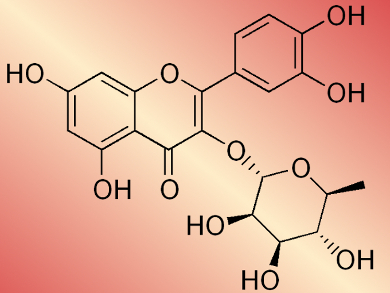Many implantable devices fail due to insufficient tissue integration, infection or inflammatory responses. Therefore, the creation of bioactive surfaces by immobilization of bioactive molecules on the surface of implants has drawn increasing attention, as this might promote tissue-material integration.
Joana Ramis, Research Institute on Health Issues, Palma de Mallorca, Spain, and colleagues covalently linked flavonoids on titanium devices with (3-aminopropyl)triethoxysilane (APTES) as coupling agent. Flavonoids are of special interest, as these small and natural polyphenolic compounds have antioxidant, anti-inflammatory, and anti-bacterial properties. The grafting of the flavonoids on the Ti surface is confirmed by Fourier-transformed infra-red spectroscopy (FTIR) as well as by fluorescence microscopy. The biological compatibility is tested in vitro with human stem cells from conjunctive tissue and the gingival.
Cells grown on flavonoid-modified surfaces express various biological markers that could have a positive impact on the integration of implants. Since flavonoids exhibit a huge variety of different biological functions, they could be used to develop implantable medical devices with specific surfaces according to their dedicated purpose.
- Flavonoid-Modified Surfaces: Multifunctional Bioactive Biomaterials with Osteopromotive, Anti-Inflammatory, and Anti-Fibrotic Potential,
Alba Córdoba, María Satué, Manuel Gómez-Florit, Margarita Hierro-Oliva, Christiane Petzold, Staale P. Lyngstadaas, María Luisa González-Martín, Marta Monjo, Joana M. Ramis,
Adv. Healthcare Mater. 2014.
DOI: 10.1002/adhm.201400587




